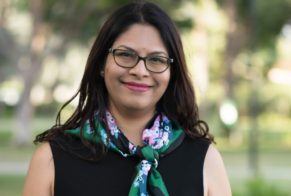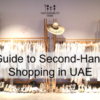Tribe, in the first week of Expo 2020 Dubai, World Green Economy Summit 2021 was held. Bringing you some exclusive discussions and report from WGES-2021 for you.
This World Green Economy Summit was a bit special than previous editions, with the theme of ‘Galvanizing Action for Sustainable Recovery’. One because it was hosted in World Expo 2020 Dubai bringing wide international participation in the 7th Edition. Secondly and more important this time it was held just ahead of COP26 Climate Summit at Glasgow.
During the 26th Conference of the Parties of the United Nations Framework Convention on Climate Change (UNFCCC) all countries that have signed Paris Agreement, parties that are committed to UN SDGs are coming together to accelerate action towards keeping Earth’s temperature below 1.5 degrees. And so this WGES-2021 brought a lot of significant discussions around how our world can collectively solve climate emergencies.
Sustainability Tribe being a prominent voice for sustainability in the region, we have been getting invited to WGES since the first few editions. Here you can read about WGES 2016 here.
WGES is hosted under the patronage of HH Sheikh Mohammed bin Rashid Al Maktoum, Vice President and Prime Minister of the UAE and Ruler of Dubai, Dubai Electricity & Water Authority (DEWA), and World Green Economy Organization (WGEO).
WGES brings together world-class experts in critical sectors from around the world to directly focus on advancing the global green economy and sustainability agendas, achieving the United Nations Sustainable Development Goals, and implementing the Paris Agreement.
The summit showcases innovative solutions and leading practices to inspire change and aims to align stakeholders with policymakers to create a facilitative environment and ecosystem for sustainable green growth that addresses current and future needs.
There were many discussions at WGES-2021 around topics like Food Security, Renewable energy, digital transformation, innovation, private and public sector action, etc. However, we are bringing some selected discussions and topics which interest us the most.
Mary Robinson, the former and first female president of Ireland, former UN Special Envoy on Climate change, brought UN negotiations in simplistic forms to bring attention to Climate Justice.
She explained how Climate Justice can be classified in 5 ways. The first type of climate justice to recognize how climate change has affected poorer nations including developing or underdeveloped nations when in reality contribution to climate change has been mainly by developed nations for the last many decades. When we look at the developing world, we mainly can see the struggle of indigenous people who are mostly fighting for survival in their own land due to the adverse impact of climate change and this also links to racial justice.
Mary talked about the Climate Vulnerable Forum, which is a global partnership of countries that are disproportionately affected by the consequences of global warming.
She mentioned, so much focus is given the US and China’s stand on climate change but we need to pay more attention to small island nations that are directly getting affected by climate change and already facing a climate emergency.
These nations will need financial support from the developed world to mitigate and adapt to climate change because their population is already facing threats like displacement due to sea rise levels or floods.
Gender inequality can be categorized as the second type which we can see around the world. That includes pay gaps, women empowerment, discriminatory gender norms, unequal access to land and other resources, and the pervasiveness of gender-based violence, lack of opportunities to women for education, growth, and development. So many topics can come under this category including a popular example of how African girls miss schools because they need to fetch water home from long distances because of water scarcity (linked to climate change).
The third category is Intergenerational injustice.
What is intergenerational justice? Standford Encyclopedia says, ‘first, whether present generations can be duty-bound because of considerations of justice to past and future people; second, whether other moral considerations should guide those currently alive in relating to both past and future people; and third, how to interpret the significance of past injustices in terms of what is owed to the descendants of the direct victims of the injustices.’
Mary rightly gave the example of todays’ youth icon Greta Thunberg and how her Fridays For Future movement is demanding global leaders to do more.
The fourth category will be injustice between different pathways and clashes between the developed world and developing world which we see during COP summits.
We need nations to agree on pathways and actions in solidarity then only we can actually solve the climate emergency and all the world problems.
I would like to add a current trending topic of ‘Net Zero’. Many people are not aware that Net Zero Emissions do not necessarily mean real zero emissions. There are different pathways to achieve net-zero and some of them like carbon offsetting is still controversial. Of course, the research on these pathways and goals is ongoing. But training, education, and data transparency can be the solution to this category of injustice.
The last category is an injustice to nature itself. How human intervention impacted on environment and caused loss of biodiversity, vanishing species, drastic changes in weather patterns, change of land use (cutting forests and using for farms or cities), global warming, etc.
I can’t agree with Mary more, during many corporate education programs I repeatedly mention how our civilization depends on nature and natural resources. We take materials like metals, water, etc., and services like food growing, etc. from nature; so if we create a non-reversible imbalance in the natural system, not just us individually but even our industry will affect badly. And climate change is non-reversible. Because of climate change, not just our next generations but even our industries will struggle to survive and thrive in the future.
To conclude her session Mary Robinson said, ‘In upcoming COP 26, we need to assess the gap that still remains to stay below 1.5 degrees.’
A special panel discussion was hosted and speakers included top-level officials including Aminath Shauna, Minister for Environment, Climate Change and Technology of the Republic of Maldives; Molwyn Joseph, Minister of Health, Wellness & the Environment, Antigua and Barbuda; Martha Delgado, Deputy Minister for Multilateral Affairs and Human Rights of Mexico; Ahmad Buti Al Muhairbi, Secretary-General of the Dubai Supreme Council of Energy; and Ovais Sarmad, Assistant Secretary-General, United Nations and Deputy Executive Secretary of the United Nations Climate Change Secretariat.
Maldives’s Minister of Climate change, Shauna urged the audience ‘Imagine you are Maldivian and imagine your home is facing direct impacts of climate change. She mentioned that 80% of their islands are just 1 meter above the sealine. To get perspective for our readers, scientists have warned that at 1.5 degrees global temperature rise, sea level will rise by 48 centimeters, and global warming by 2 degrees will result in 58 centimeters of sea-level rise.
The Maldives is also facing 60% shoreline erosion and 90% of their islands are facing frequent flooding. So Climate adaption is critical for the Maldives as they face it daily.
Antigua and Barbuda’s Molwyn said 95% of their islands are destroyed. And people are forced to displace. They are victims of climate change. He said countries like our small island nations are not asking for charity but we are urging the world to be sensitive to our people’s struggle. He also mentioned that it’s disappointing that fossil fuels are still receiving more subsidiaries than renewable energy.
On this background hearing, Youth’s perspective at WGES was crucial. It was a welcoming move by WGES to engage youth in this edition.
Sharing their insights during the session were Shamma bint Suhail Faris Al Mazrui, Minister of State for Youth Affairs, UAE; and HRH Princess Abze Djigma, Special Envoy of the President for Resource Mobilisation for SDGs and Climate Change, Burkina Faso talked about hearing Vs listening. They discussed how youth want world leaders to listen to youth’s demands and act accordingly.
The Arab Youth Council for Climate Change (AYCCC) represented the youth sector in the discussions that saw the council sharing its plans to ramp up the participation of the young people in climate change mitigation and development of climate priorities and policies ahead of the 28th session of the Conference of the Parties (COP 28).
Shamma mentioned what issues today’s youth are facing. She said youth want a new language that can be more relatable. She mentioned youth don’t understand heavy and complicated terms they need simplified information.
On this front, we are so proud that it’s been 12 years Sustainability Tribe has been bringing authentic, correct but simplified information to the public about climate change and climate action. There is no surprise why so many Youth in the UAE are joining our Youth Ambassadorship program, where they get to learn about sustainability, sustainable development in simple words. It’s our way of fueling youth climate activism by building their capacity.
We have committed to a bigger mission of educating society about sustainability, making it accessible to everyone via a sustainability education platform. This way we can contribute to making our society future-ready and currently to fight climate change.
One of our 30-min short courses is SDG Reporting Simplified. This course is designed to provide an introduction, pathway, and step-by-step guidelines about SDG Reporting.
To conclude this report from WGES, I too hope that conferences like these will fuel actions in the coming months and years.

Amruta Kshemkalyani, an expert sustainability professional turned social entrepreneur, is the founder of the Sustainability Tribe, AK Sustainability
Read More >>
Copyright 2025 © Sustainability Tribe, Registered under 'Sustainability Tribe Marketing Management' in the U.A.E., Design by LBM INFOTECH